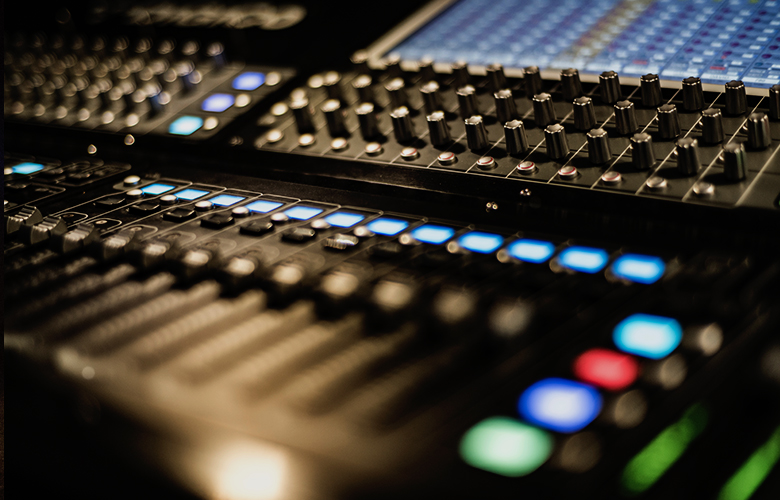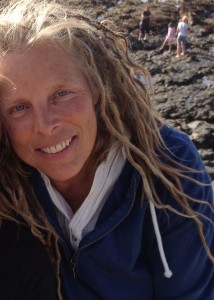
Julie is a music industry professional with many years of experience. Julie is familiar with all aspects of the live music scene. Working from small venues to large festivals, she developed a stellar reputation as a sound engineer and continued working with equal excellence in all aspects of the industry.
From the strategic big picture to the nuts and bolts, Julie’s creative thinking, understanding of the industry and friendly calm approach has been a welcome addition to thousands of shows. I caught up with her to talk about her experience and advice.
I have worked in the music industry primarily as a sound engineer, but also in many other capacities (producing, booking, consultant, venue management…) including owning my own business for about 27 years. I have been currently taking time off to pursue other interests and am only working occasional gigs.
As a sound engineer, I have worked festivals to venues to all kinds of gigs in between and in many genres of music. I was the Chief Sound Engineer and Production Manager for Kuumbwa Jazz Center for 17 years where I became very enmeshed in jazz.
I think for me the highlights are just the extensive work I have done with many of the greatest and most creative musicians in the world.
Sound Engineering along with the entire music industry has traditionally been a very predominantly male field (as I’m sure you and your readers are aware). I have definitely had to be quite a bit better to have had the opportunities that I have had and I have still lost out quite a bit due to being a woman. I have had to prove myself at every gig as a seriously talented engineer to immediately gain the confidence of the musicians I have worked with. I have lost jobs to men quite a bit less qualified or skilled as myself many times.

I don’t think that one needs an education to work as a sound person, although there are more and more programs around the country that are now training people for the field. When I started, many people, including myself began through radio work. I had been a radio news and documentary producer before going into sound engineering full time. I think that it is more about proving yourself as capable and who you know that gets you into the field.
I actually never intended to become a sound engineer. I fell into it as a fluke. I was at a women’s music festival and one of the sound people didn’t show up, I said that I could probably figure it out and was put to work. I managed to do a good job and then started getting calls for jobs until it then became what I was doing full time. After I had created a career, I formally studied it to improve my knowledge.
I didn’t have any. I truly taught myself and never had any encouragement from men in the field. I didn’t know any women early on and later as I became more well known, I could count the professional women sound people I knew on one hand. It is nice to see more women in the field.
I think that it helps as it does in most fields. People like working with people they enjoy being with – this many times trumps skill. As a people person I think that you can influence a performance by ‘setting the stage’ for performers to feel good and do their best. To be a well rounded sound person, in my view, requires 1/3 technical savvy, 1/3 people skills and 1/3 creative.
In order to give the best advice, I would first ask her questions, such as:
My advice would come from dialogue and understanding of who she is and where she is at.
I would never want to discourage someone from following their dreams but I also know that the sound field is limited, doesn’t necessarily offer financial or job security and is not as in demand as many other professions. That said, it is possible.
I think there is a need for more women in all professions, except for the traditionally female ones. It is the direction our planet needs at this time in history.
Yes, I have felt barriers, but I have also broken through some of those barriers by working to be extremely good at what I do. I think the barriers are ever so slightly less now than historically. Although there has been progress, it is slow. It is embedded in society, education and the core fabric of patriarchy that women still grow up systematically excluded from many professions and opportunities in life. When we do break the barriers, we are oftentimes expected to do more for less. Sound is an excellent example of this but it permeates most fields. It is life and reminds me of the Charlotte Whitton quote “Whatever women do they must do twice as well as men to be thought half as good. Luckily, this is not difficult.”
Article by SoundGirl: Victoria Boyington
Another great article by SoundGirls: Entertainment Industry: Stay In The Game Or Go?
Follow SoundGirls on Instagram, Twitter


The mission of SoundGirls.org is to inspire and empower the next generation of women in audio. Our mission is to create a supportive community for women in audio and music production, providing the tools, knowledge, and support to further their careers. SoundGirls.Org was formed in 2013 by veteran live sound engineers Karrie Keyes and Michelle Sabolchick Pettinato and operates under the Fiscal Sponsorship of The California Women’s Music Festival, a 501(c)3 non-profit organization. In 2012, Karrie and Michelle participated in the “Women of Professional Concert Sound” panel at the AES Conference in San Francisco. The panel was hosted by the Women’s Audio Mission (WAM) and moderated by WAM founder Terri Winston. Terri brought together five women working in live and broadcast audio. The groundbreaking panel (which also included Jeri Palumbo, Claudia Engelhart and Deanne Franklin), provided young women and men a glimpse into life on the road, tips and advice, and a Q & A with the panelists. More importantly though, was how incredibly powerful the experience was for the panelists. We had all been in the business for 20 years or more, yet most of us had never met before that day and within minutes we bonded like long-lost sisters. We were struck by how similar our experiences, work ethics, and passions were and wondered why our paths had never crossed and how our careers would have been different had we been there to support each other through the years. Each of us are strong on our own, but together we were even stronger and a powerful force. We were empowered. Each of us had been asked hundreds of times in our careers: Are there other women doing sound? How did you get into sound? How would a young woman go about getting into sound? Through creating SoundGirls.Org, we hope to establish a place for women working in professional audio to come for support and advice, to share our success and failures, our joys and frustrations, and for empowerment and inspiration.
Read Full Profile© 2021 TheatreArtLife. All rights reserved.

Thank you so much for reading, but you have now reached your free article limit for this month.
Our contributors are currently writing more articles for you to enjoy.
To keep reading, all you have to do is become a subscriber and then you can read unlimited articles anytime.
Your investment will help us continue to ignite connections across the globe in live entertainment and build this community for industry professionals.